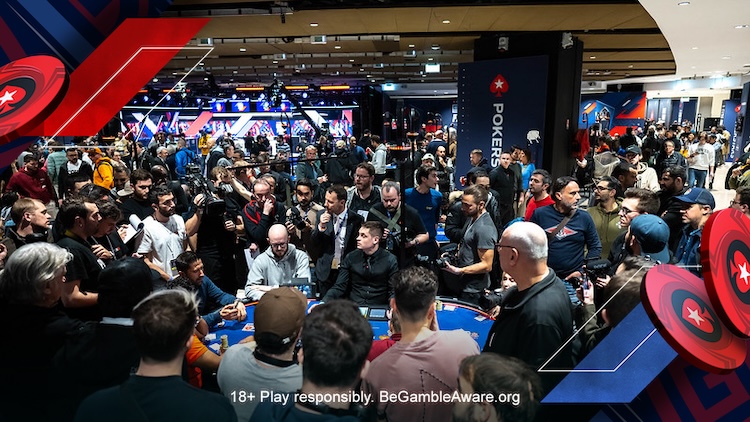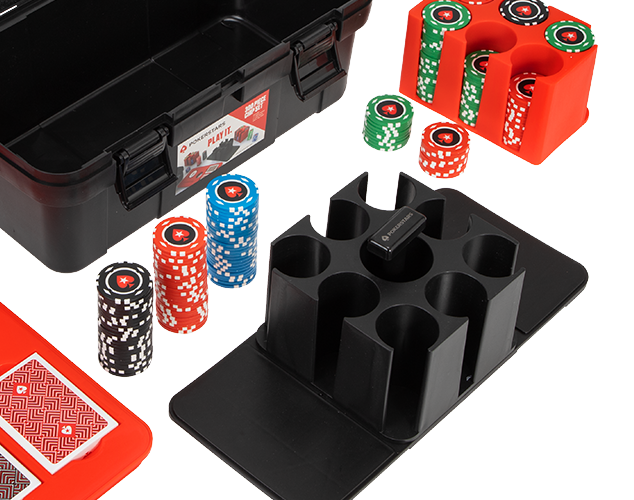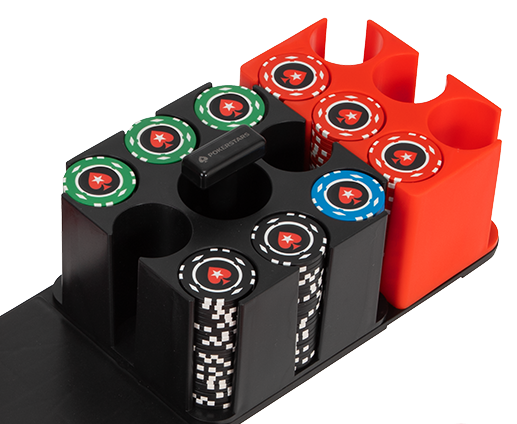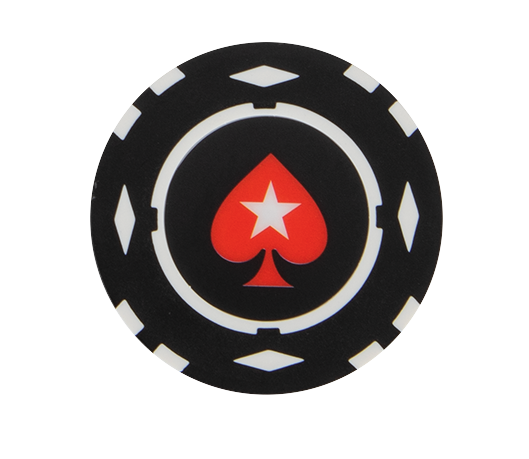Life on the poker circuit can be companionable, invigorating and exhilarating. But it can also be solitary, daunting and exhausting. And while it may seem as though nobody could feel isolated in a room full of more than 1,000 people, absolutely anyone can suffer a dip in their mental health that could leave them feeling dangerously alone.
Before PokerStars staff embark on a trip to the European Poker Tour (EPT), or any other tour, everyone receives a “Mental Health Toolkit” and a “Wellbeing Information for Events Pack”, prepared by Flutter HQ. (Flutter is PokerStars’ parent company.)
These packs encourage employees not only to work to safeguard their own wellbeing, but also to check in on their colleagues, particularly if they notice any change in behaviour.
As a long trip to EPT Paris draws to a close, the advice contained in these documents is perhaps more important than ever. And it’s relevant, of course, to everyone, not just those of us in a STAFF hoodie.
Poker players are perhaps particularly susceptible to dips in mental health. In addition to all the other stresses and strains of a regular job, the financial demands of poker can be especially volatile.


It’s not always easy to know what’s going on in a poker player’s head
It also must be difficult sometimes to be in a room where ticker tape falls from the sky in celebration of someone else’s incredible success if you’re in the middle of a downswing.
With all that in mind, here is some of the advice from those wellbeing packs, which is surely worthwhile sharing far and wide. Much of it is simple common sense, but it’s always important to check in your circle of friends — and sometimes even occasional acquaintances — just to make sure things are going OK.
And if not, there are plenty of resources one can call on, at any time of the day and in any country in the world. See the information below.
Signs of concern
It’s not always obvious if someone is experiencing a mental health challenge, particularly not in an environment often bristling with bravado. But here are some potential signs that someone might not be operating at 100 percent.
None of these mean for certain that a person is under the weather, but these are just a few signs that maybe suggest it’s worth having a chat.
- Poor concentration
- Finding it difficult to control emotions
- Lack of motivation
- Being easily distracted
- Finding it hard to make decisions
- Tiredness and lack of energy
- Worrying more
- Feeling overwhelmed by things
- Low mood
- Sleeping more or less
- Tearfulness
- Talking less and avoiding social activities
- Irritability and short temper
- Uncharacteristic mistakes
- Poor concentration
- Feeling less interested in day-to-day activities
- Talking more or talking very fast, jumping between topics and ideas
The Conversation
It’s not always easy to initiate a conversation about personal matters. But it can often be very worthwhile. According to the experts behind the wellbeing packs:
“Talking about mental health can seem daunting, but we’ve all had conversations with people about bereavements, breakups and other life events – they don’t always start easily but they often mean a lot to a person having a tough time.
“It all starts with asking someone how they are doing in a warm and authentic way – giving them a chance to realise that you are being sincere and friendly.”


A conversation with friends can go a long way with helping anybody
Time
Finding the time for a chat can be tough. The tournament clock usually dictates the schedules of poker players, but even the most hectic tournaments give players regular breaks.
Players are often also staying in the same hotel as one another, so there’s possibly opportunities while at breakfast or in the bar to find some time together. According to the wellbeing packs, it’s important to make sure you have sufficient time to offer support to a friend.
“Find a time where you know you have at least 10 minutes of clear time to give,” the advice reads. “It’s very important to devote your full attention to the person you are reaching out to. That means minimizing disruptions like phones ringing or notifications popping up.”
Questions
To start a conversation about mental wellbeing, these questions can help:
- “Can you tell me what’s going on?”
- “You seem unfocused lately, want to talk about it?”
- “What do you need from me? How can I help?”
- “How are you? You don’t seem yourself.”
- “Need to talk?”
- “Can you share what it’s like living with your condition?”
- “What’s your diagnosis, and how do you feel about it?”
- “You’ve been quiet, is everything alright?”


Poker offers glitz and glamour, but it can be exhausting and isolating too
Active Listening
It’s important to give them your full attention and listen to what they are saying. Here are some tips:
- Make eye contact if it’s comfortable for the person.
- Acknowledge by nodding, gesturing, and restating key points.
- Ask pertinent questions without being intrusive.
- Don’t pressure them to say more than they are ready to share.
- Recap discussions, follow through on commitments.
- Have useful resources ready.
Managing Your Own Feelings
Listening to difficult or upsetting things can be challenging but remember to:
- Be reassuring; don’t judge or act surprised.
- Keep conversations respectful and confidential.
- Ask their goals before offering any solutions.
- Stay open to suggestions or just let them vent.
- Set boundaries to protect yourself; you’re not a trained counselor. Be mindful of your own wellbeing
Mental Health First Aid for Different Cultures
One of the very best things about the European Poker Tour (EPT) is the way in which people from across the world come together thanks to a shared passion. Players strike up friendships with people from numerous countries and cultures, many of which last for ever.
However mental health and wellbeing can be viewed very differently across the world.
And this can mean some people may not feel comfortable sharing experiences, asking for or offering support.
When speaking to others it’s important to consider the following:
- Be aware that culture shapes how mental health is viewed
- Recognise that beliefs about mental health may vary and be different to your
own - Be aware of what may be considered taboo to prevent causing shame
- Approach their experiences with empathy, compassion, and patience
- Respect their culture by using appropriate language and behaviour
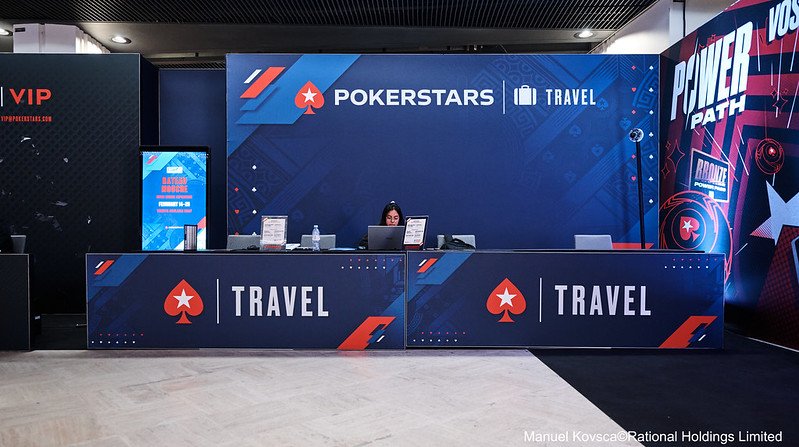

Consider signing up for one of the free off-the-felt activities
SUPPORT SERVICES
Here are some places to call if you, or somebody else, needs some support.
0800 58 58 58
5pm – midnight (UK time)
365 days a year
Website includes links for International Mental Health Charities worldwide.
US Text 741741
CA Text 741741
UK Text 85258
Ireland Text 50808
Connect with a volunteer Crisis Counsellor
FURTHER SUGGESTIONS
Sometimes a change can be as good as a rest, so be sure to check out the various off-the-table activities on offer for players and guests on the EPT. Just getting out of the poker room and doing something else can be very useful and there are always plenty of things on offer at the EPT Travel information desk.
We have also previously published a very useful guide to Yoga for Poker Players. Keeping your body healthy can help your mind as well.
And if ever in any doubt about anything, reach for one of those people in the EPT STAFF hoodies. We have trained first aiders and mental health practitioners on site to help with anything.
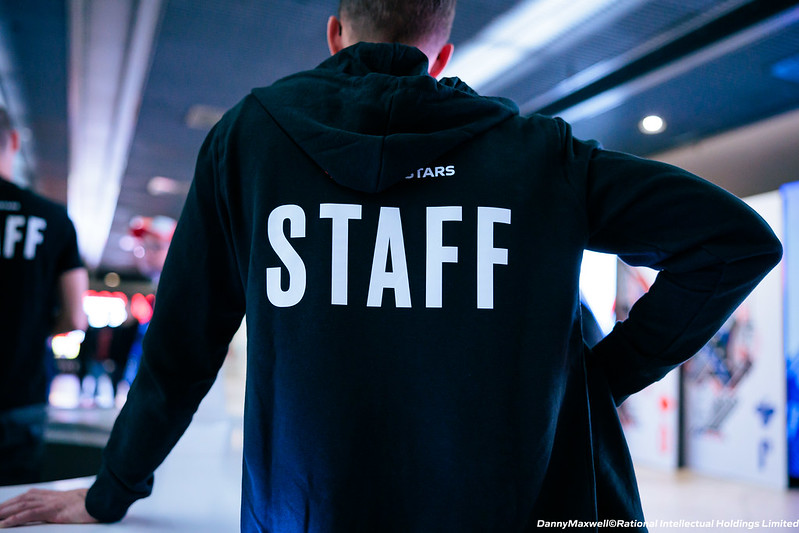

EPT event staff are always happy to help with any issues
MORE ABOUT THE EPT
EPT official site
EPT Paris coverage hub



